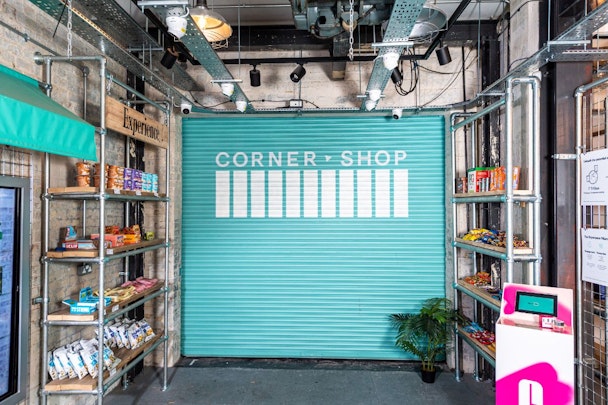How automotive brands are driving innovation with connected commerce
As part of our ‘Behind the future of retail’ content series, we look at how the automotive industry is revving up its efforts in the connected retail space to create a more rounded customer journey.

Connected services can help to increase customer retention rates
The automotive sector has experienced some challenging times, but recent innovation has secured its future.
There are already signs of a post-Covid boost to the industry. For instance, new car sales in the UK rose for the fourth consecutive month in November, increasing by 23.5% as drivers looked for fresh options despite the cost of living crisis. The electric vehicle space was especially buoyant, now accounting for 20% of total sales.
More specifically, in terms of the retail experience and connected commerce, automotive is a category at the vanguard of change. Due to its heavy investment over time in the physical space – car showrooms – it has a healthy tradition to support future growth. But, it has also had to get to grips with connecting these places to a more rounded buying process.
For instance, BMW rolled out its ‘retail next’ showroom design concept. A key factor, beyond the emphasis on creating a premium experience, was to connect the physical space to digital touchpoints. 80% of car buyers want to base at least part of their vehicle purchase online, according to research from Frog, part of Capgemini Invent.
It is also the case that vehicles have become a media space in their own right – a connected place where retailers can reach people in a direct and frictionless way. And all the evidence points to drivers valuing this highly, to the extent that 37% stated they’d switch car brands in order to achieve higher standards of connectivity.
Advertisement
Connected services
Automotive brands themselves are well placed to make significant profits from this connectivity in terms of the data that they can provide on people’s behavior while driving their vehicles. Another significant upside for these companies is that these connected services will also help them to increase their customer retention rates due to the high value that drivers now place on this connectivity.
The fact that automakers are investing in vehicles as a place of togetherness and coming together should encourage retailers looking for new ways of connecting with consumers. For example, Mini’s concept vehicle Urbanaut is pointing the way forward for cars as a space for a collective experience. The brand is envisioning the car as “an urban space for people when it’s standing still.”
Clearly, this creates opportunities for retailers looking to reach people in a positive state of mind for purchasing products. That’s partly because people’s relationships with their cars are intimate – they really care about their vehicle and prize their time there. This creates an exceptional opportunity for retailers looking to connect with these drivers, but that comes with responsibility. Brands must have permission to connect with drivers and do so in a meaningful and frictionless fashion.
Advertisement
Seamless connections
A strong focus on seamless connection explains the success of voice-activated apps in cars. Ford, for instance, has worked with Starbucks on enabling in-car purchasing through voice-activated technology linked to Amazon’s Alexa service.
As retail becomes increasingly connected and caters for people’s demand for convenient and relevant experiences, in-car marketing will become more sophisticated. We’re witnessing this in the shape of GPS navigation apps that help retailers target drivers in specific locations. Renault, for example, has just signed a deal to provide a dedicated Google app that offers drivers real-time routing, navigation and alerts.
There’s momentum behind this due to heavy backing for systems in vehicles – GPS navigation technology is expected to achieve a valuation of $35.7bn by 2030, a growth of 11% each year. And smart retailers will invest greater levels of resources in reaching drivers with strong marketing messages combined with a call to action that delivers sales.
The sophistication of the automotive industry’s own marketing and its heavy investment in vehicles as something more than a means to get from A to B will only fuel this growth in motors not just as a retail space but also simplifying the journey to connect seamlessly from car to store or showroom.
Suggested newsletters for you
An evolving purchase process
This is apparent in the great steps forward taken already by car manufacturers in innovating the vehicle purchasing process itself. Technology has helped accelerate this development, together with restrictions around Covid-19 limiting people’s capacity to visit showrooms.
For example, in the UK, Toyota has launched a five-stage process to enable drivers to purchase its vehicles entirely online – whether new or second-hand. Features include a comparison tool to encourage easy viewing of various models and specs, a range of payment options and seamless connection with a Toyota retailer to provide collection of the vehicle.
Meanwhile, selling cars on social platforms has become a reality with brands including Nissan investing in the space, working with its 1,100 US dealers on establishing a Facebook Live network involving one-to-one digital appointments.
We haven’t quite yet seen widespread adoption of one-click purchases of new vehicles through WhatsApp – on such high-ticket items, people still value an informative and thorough buying experience regardless of the platform. However, it’s certainly the case that the omnichannel buying experience is established firmly in the automotive sector.
To find out more, click here.
Content created with:

Capgemini
Capgemini is a global leader in partnering with companies to transform and manage their business by harnessing the power of technology. The Group is guided everyday...
Find out more